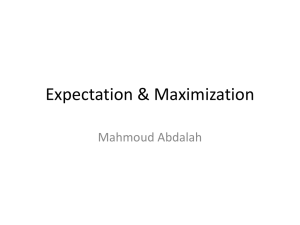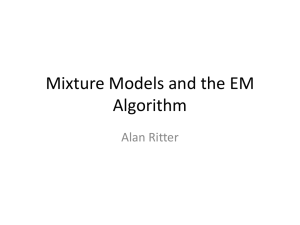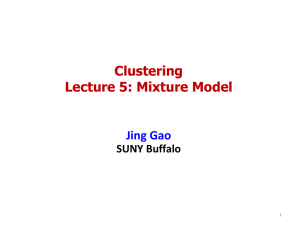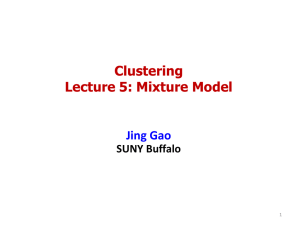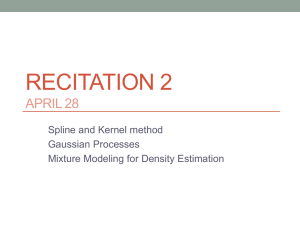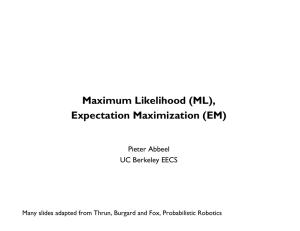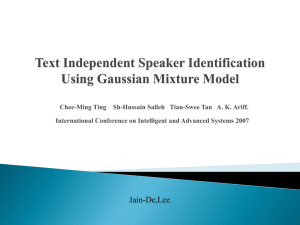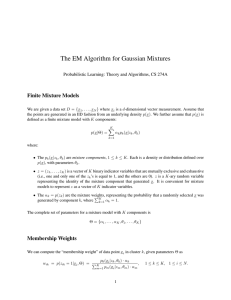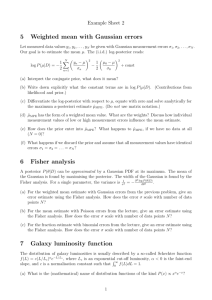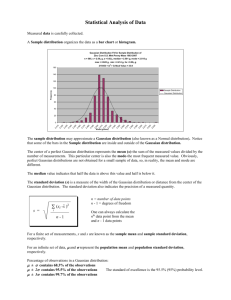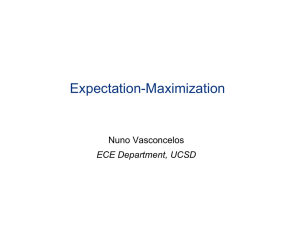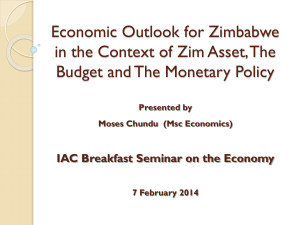Gaussian Mixture Model
advertisement
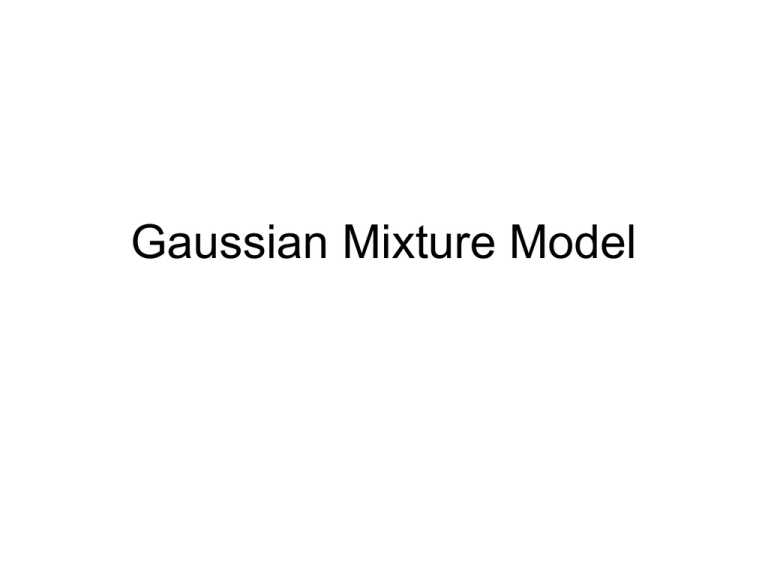
Gaussian Mixture Model Mixture Modeling A formalism for modeling a probability density function as a sum of parameterized functions. Normal parameters Number of hidden components Class weights Px , m Px m , m M m 1 Observations Class weight, class prior probability, multinomial Multivariate Normal Normal = Gaussian Gaussian Mixture Gaussian Mixture Let Data Likelihood Zi1 Z Zi i2 ZiM where Zim 1 if X i is fromgroup m, and 0 otherwise. Under the assumption that the pairs (Zi,Xi) are mutually independent, their joint density may be written N M i 1 m pZ, X | m px i | m Zim Data Log Likelihood N M i 1 m pZ, X | m px i | m Zim The complete-data log likelihood is thus N M logpZ, X | Z im log m px i | m i 1 m 1 EM Algorithm E-Step: 估计Zim M-Step: 估计πm, µm,∑m EM Algorithm: E-Step EM Algorithm: M-Step Bayesian Ying-Yang Learning • Proposed by Prof. Lei XU Reference: Jinwen Ma, Jianfeng Liu. The BYY annealing learning algorithm for Gaussian mixture with automated model selection, Pattern Recognition, 2007, 40:2029-2037. Fig. 6. The segmentation result on the color image of house. (a) The original color image of house; (b) the segmented image via the BYY annealing learning algorithm (after 21 iterations). Fig. 8. The segmentation result on the color image of jellies. (a) The original color image of jellies; (b) the segmented image via the BYY annealing learning algorithm (after 22 iterations).
